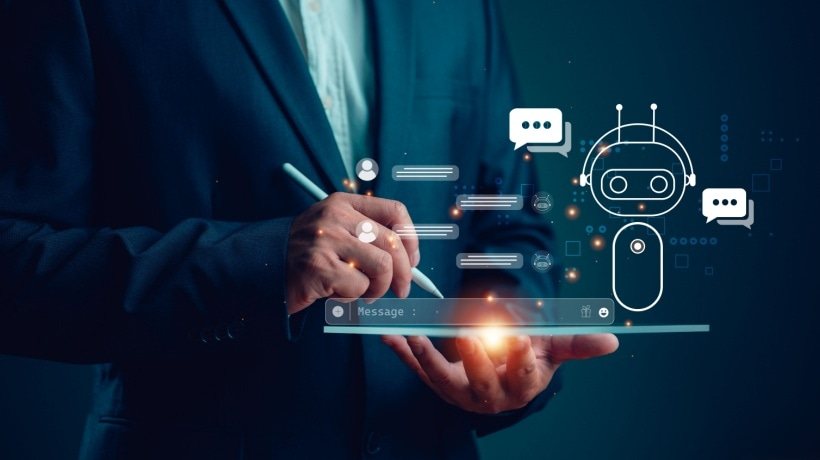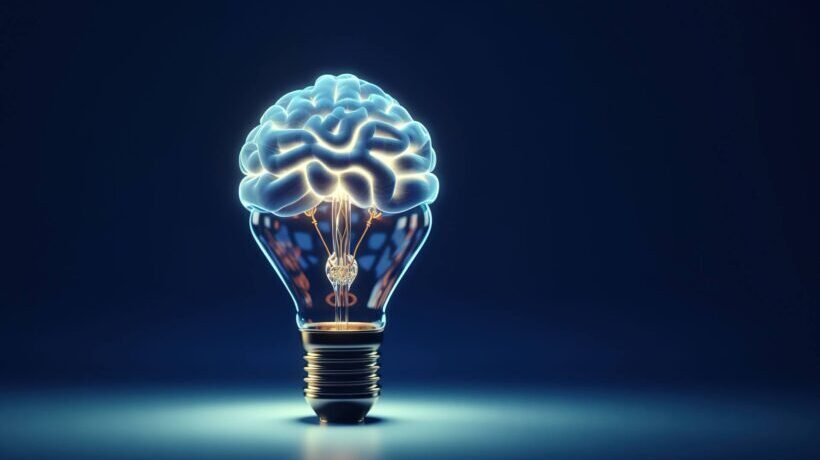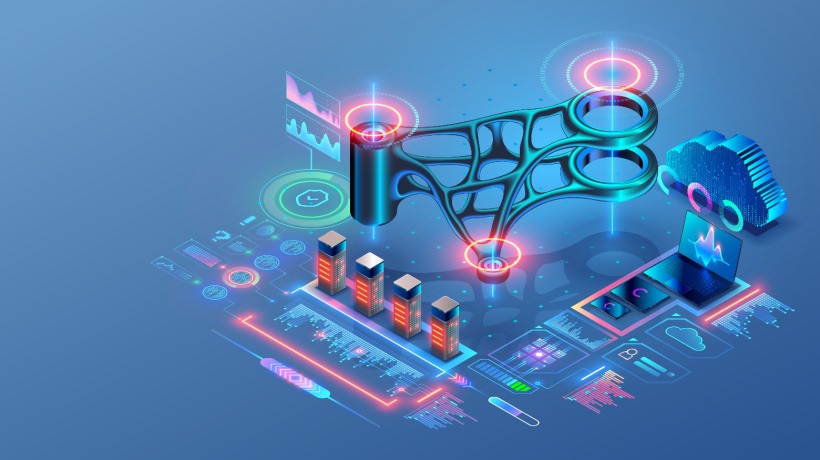Generative AI In eLearning Development
The fusion of Artificial Intelligence (AI) and eLearning has led to transformative advancements in the education sector. Generative AI, with its ability to autonomously create innovative content, is changing the way we learn and teach. This breakthrough technology enhances learning experiences by offering personalized, efficient, and engaging educational platforms, adapting seamlessly to diverse needs.
Generative AI is redefining eLearning, making it more flexible and tailored to individual learning styles and paces. The integration of AI in eLearning is optimizing educational environments from personalized content creation to adaptive virtual tutoring, ensuring that each learner can achieve their fullest potential. This synergy between technology and education promises to elevate the quality and accessibility of learning, making it more impactful and inclusive.
As we explore the top generative AI trends and applications in eLearning development, we uncover the immense potential of this technology to transform educational experiences. These advancements not only enhance student engagement but also promote better comprehension and improved learning outcomes which indicates a new era in education.
Importance Of eLearning In This Digital-First World
In today's digital-first world, eLearning has transformed education, making it more accessible and flexible. Students can now access courses anytime and anywhere, allowing them to learn at their own pace. This flexibility is essential for those juggling work, family, and education.
eLearning also connects students with educators and peers globally, encouraging a diverse learning community. This global interaction encourages collaboration and innovation, enriching the educational experience. As technology advances, eLearning continues to ensure that education is inclusive, engaging, and relevant, preparing learners for a rapidly changing world.
The Emergence Of Generative AI
The rise of generative AI is reshaping our digital landscape, ushering in a new era where machines exhibit creativity once thought unique to humans. This technology harnesses vast amounts of data to create original content, from art to text, fundamentally changing how we interact with digital content.
Generative AI is more than just a technological marvel. It's a practical tool that fuels creativity and efficiency across various fields. By analyzing patterns, it can generate realistic images, write engaging texts, compose music, and even help in coding. This versatility makes it an invaluable asset in both creative and technical fields, enhancing productivity and creativity.
As we delve deeper into the capabilities of generative AI, its impact on industries and everyday life becomes increasingly clear. This technology is not merely an enhancement—it's transforming the very foundation of how we create and interact in a digital-first world. For anyone involved in digital content, partnering with custom AI development services is a key to unlocking new levels of innovation and efficiency.
Addressing eLearning Challenges With Generative AI
Modern generative AI tools can tackle some of the most persistent challenges in the eLearning sector with innovative solutions. By automating content creation and personalization, this technology adapts learning materials to suit diverse educational needs, enhancing both engagement and retention. It’s transforming eLearning from a static experience to a dynamic and responsive journey, tailored to the individual learner.
It enables a seamless learning experience that scales effortlessly, ensuring educational resources are more adaptable and inclusive. As we harness the power of AI, the potential for transforming educational landscapes grows, which promises a future where learning is both limitless and customized.
Top 8 Applications Of Generative AI In eLearning Development
Explore the top eight applications of generative AI in eLearning development, where cutting-edge technology meets customized education. Discover how generative AI is significantly changing the learning experience with smarter, more adaptive content solutions.
1. Enhanced Content Creation
Generative AI is revolutionizing the way educational content is created, making it faster and more efficient than ever before. By automating the generation of texts, images, and interactive elements, this technology allows for the rapid development of rich, engaging educational materials. This shift not only speeds up the content creation process but also enhances the quality and variety of learning resources available.
This innovative approach is particularly transformative for eLearning, where dynamic and diverse content is crucial. Generative AI empowers educators by providing them with a plethora of customizable and interactive educational tools. As a result, learners enjoy a more immersive and personalized educational experience, sparking greater interest and a deeper understanding of the subject matter.
2. Personalized Learning Experiences
Generative AI in eLearning transforms education by tailoring learning to each student. It analyzes data in real time, adjusting content and feedback to fit individual needs. This ensures engaging and effective learning experiences that cater to each learner's unique style.
Through data analysis, generative AI scales personalized learning, offering adaptive pathways and real-time assessment. This dynamic approach ensures relevant content and fosters student engagement, making learning more enjoyable and efficient for everyone involved.
3. Virtual Teaching Assistants
Virtual teaching assistants powered by generative AI offer personalized guidance and interaction, enhancing the learning journey. These digital entities deliver educational content in a human-like manner, providing tailored explanations and answering questions effectively. Equipped with Natural Language Processing, they adapt to students' needs, promoting self-paced learning and providing immediate feedback.
By combining the capabilities of AI with human-like interaction, virtual teaching assistants revolutionize education. They bridge the gap between technology and human educators, offering scalable and engaging assistance that empowers learners to succeed in their educational pursuits.
4. Translation And Localization Of Educational Resources
Generative AI simplifies the translation of eLearning content, making it accessible to diverse global audiences. By automating the process, it ensures accurate and rapid conversion into multiple languages while maintaining the original formatting. This promotes inclusivity, allowing learners from different linguistic backgrounds to access educational resources easily.
Through the integration of technologies like Natural Language Processing and Machine Learning, generative AI delivers contextually correct translations. This not only enhances comprehension but also ensures better engagement and satisfaction among students. By offering culturally relevant and sensitive educational content, AI-driven localization enriches the learning experience for a broader audience, which promotes global education accessibility and effectiveness.
5. Intelligent AI Tutoring Systems
Intelligent AI tutoring systems offer personalized feedback and learning experiences without human intervention. They adapt to individual learning styles, providing tailored lesson plans and freeing up teachers' time for other tasks. These systems teach diverse problem-solving approaches, promote self-paced learning, and track student progress, ensuring timely feedback and engagement. By customizing teaching strategies to meet students' needs, AI enhances comprehension and inclusivity in education, ensuring every learner receives the support they require to succeed.
6. Game-Based Learning
Incorporating game-based learning into eLearning is made easier with generative AI. It assists in designing game elements like characters, scenarios, and challenges, enhancing learner engagement. Integrating point systems, leaderboards, and badges makes learning more interactive and enjoyable. This approach not only captures learners' interest but also boosts knowledge retention. With generative AI, educators can create immersive gaming experiences that motivate students to actively participate and learn.
7. Promotion Of Advanced Cognitive Skills
Generative AI is transforming eLearning by encouraging advanced cognitive development. It creates unique challenges that require students to engage in complex thinking, like analysis and synthesis. This method helps learners move beyond simple memorization, promoting deeper understanding and problem-solving skills.
This technology carefully designs activities that challenge students to think critically and apply their knowledge in new ways. These tasks are key for developing skills that are essential in both academic and real-world settings, preparing learners for future challenges and opportunities.
8. Personalized Feedback And Assessment
Generative AI in eLearning brings personalized feedback and assessment to the forefront of learning experiences. Unlike traditional methods, it offers real-time insights into student progress, pinpointing areas for improvement instantly. By analyzing student responses, AI tailors assessments to individual needs, ensuring appropriate challenge levels.
This dynamic approach encourages continuous growth and empowers learners to succeed. With generative AI, education becomes more engaging, effective, and student-centered, paving the way for personalized learning journeys customized to each individual's unique strengths and weaknesses.
Conclusion
As we conclude our exploration of the top eight applications of generative AI in eLearning development, it's clear that this technology is reshaping the educational landscape. From creating rich, interactive content to offering personalized learning experiences, generative AI is at the forefront of educational innovation. It empowers educators to deliver more engaging and effective lessons and enables students to achieve their full potential through tailored educational journeys.
By integrating generative AI into eLearning, we are setting a new standard for what education can achieve. This technology makes learning more accessible, enjoyable, and effective, ensuring that students not only receive knowledge but also deeply engage with it. As we move forward, the continued adoption of generative AI in eLearning promises to further enhance the quality and accessibility of education, preparing learners for a world where adaptability and continuous learning are key.









